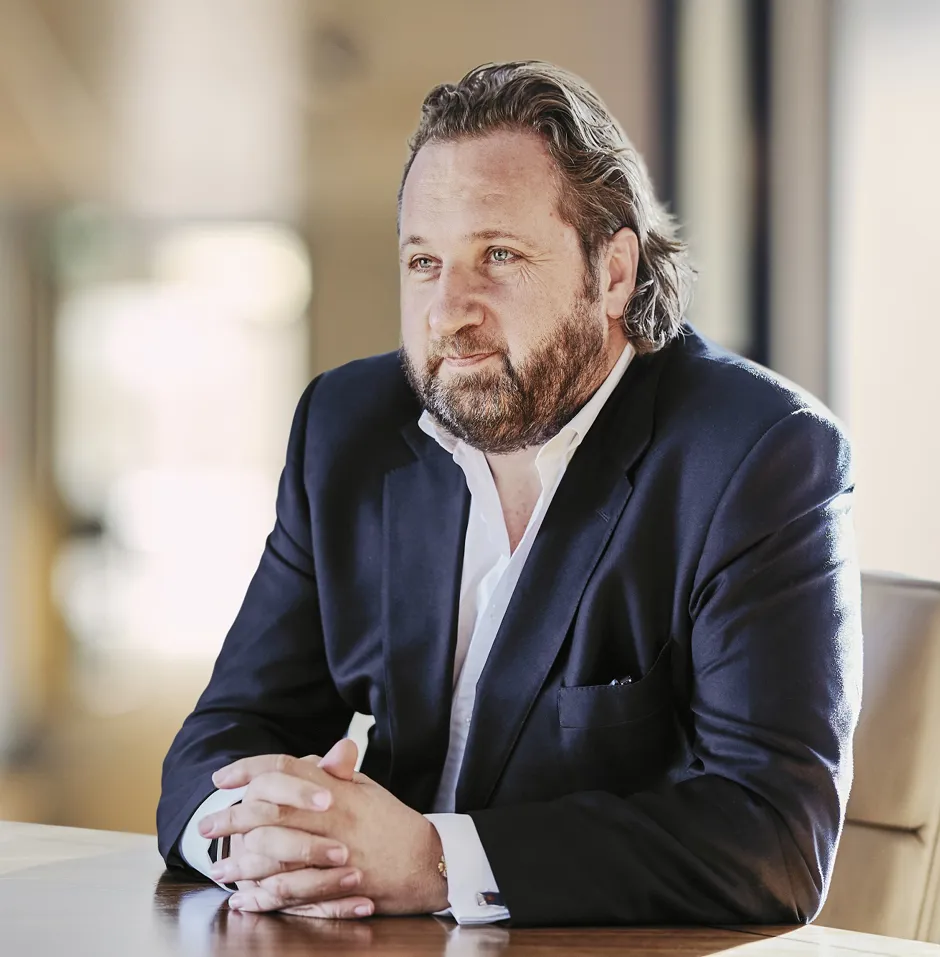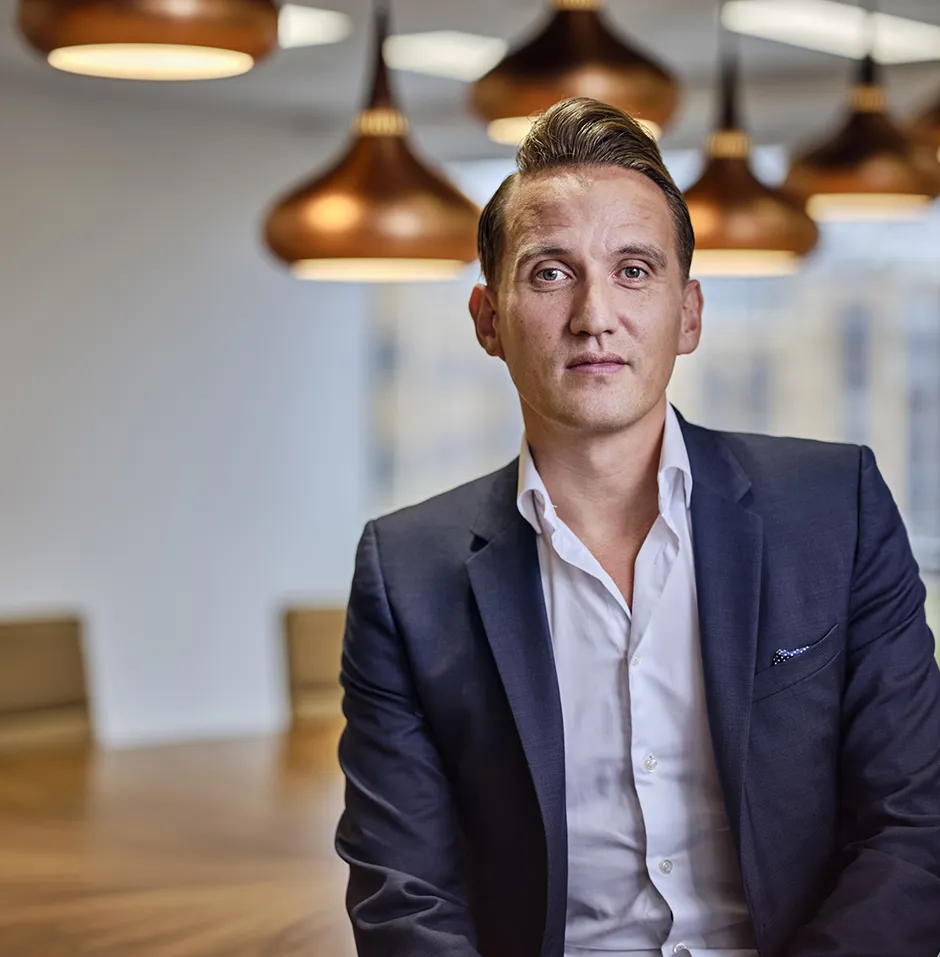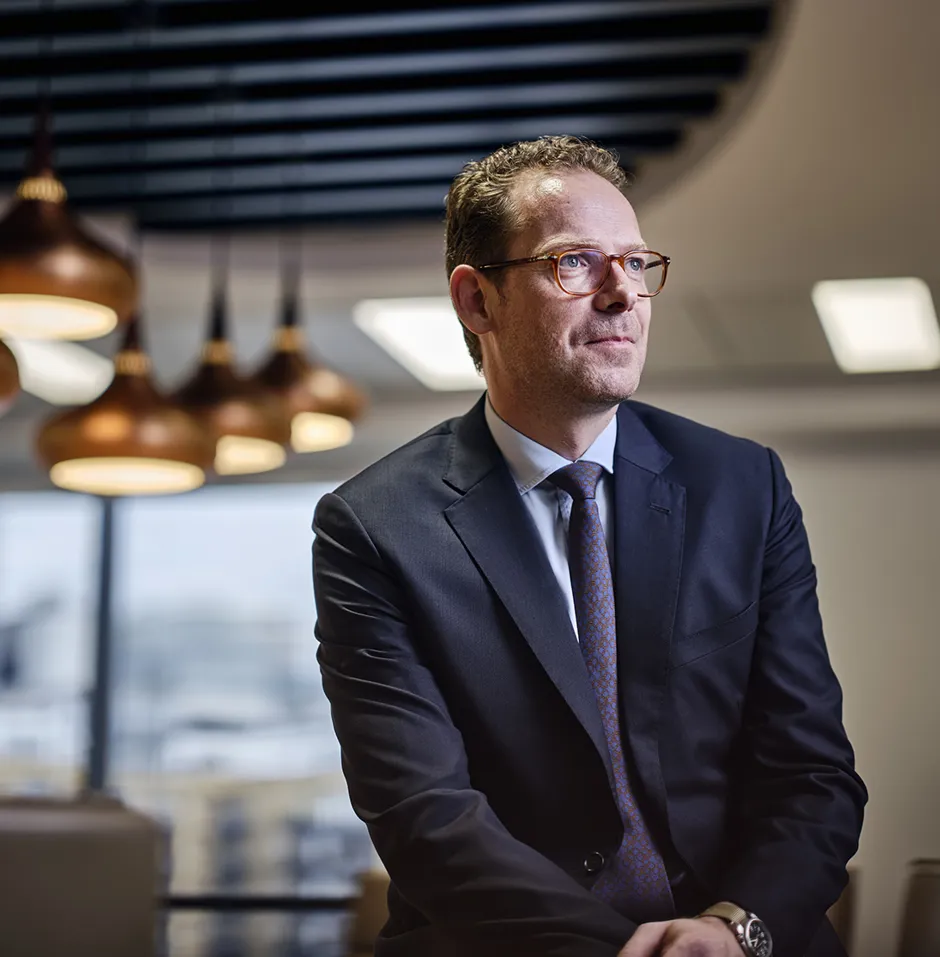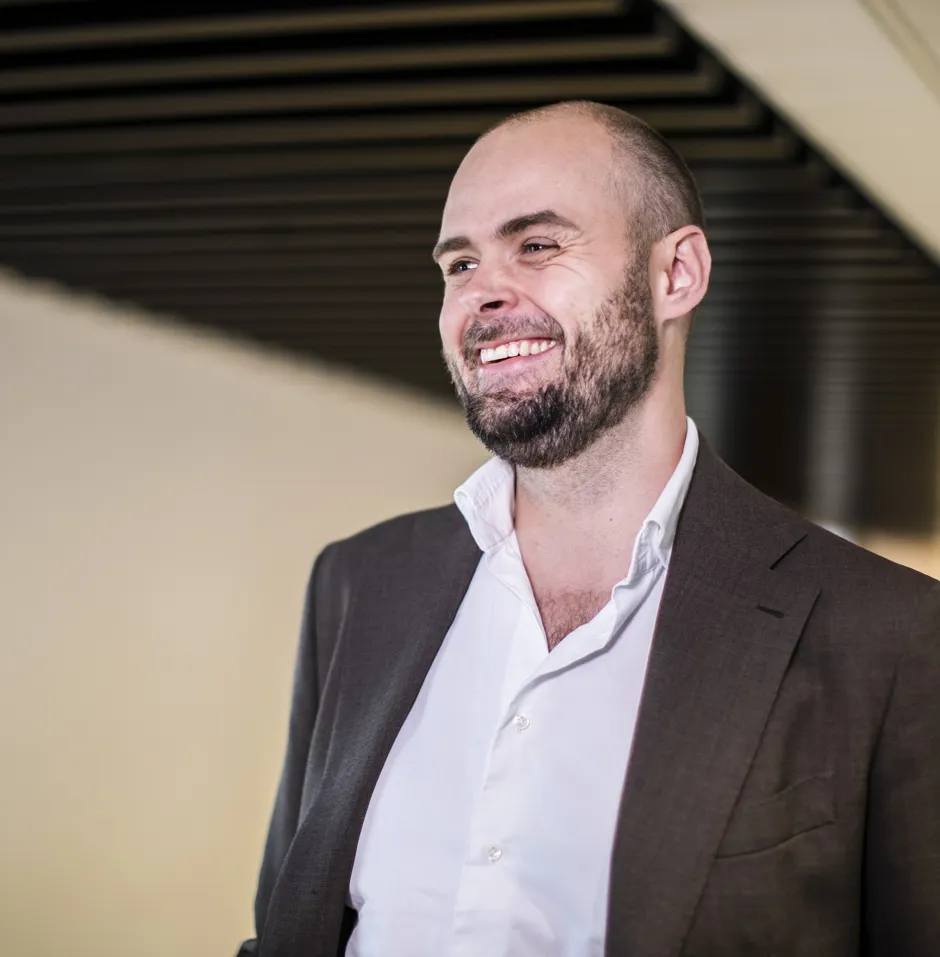We launched Clarksons’ Green Transition team in 2021, bringing together all the strands of activity around the Group that contribute to helping our clients and industry become more sustainable.
“Ensuring our Group-wide expertise and data is readily available to clients will enable the industry to reach sustainable solutions faster.”
Progress is never straightforward...
The drive towards a net zero economy is reshaping the way we operate, the way our industry works and the way global trade happens. We at Clarksons work closely with our clients to lean into this transition, because I believe there’s opportunity for everyone. Due to constantly changing regulation in this space, I’ve noticed that it’s easy to do nothing and wait for more clarity, especially in the face of the countless options and the global nature of the challenge. Progress is never straightforward. We have charted our course by setting up our Green Transition team in 2021. We are encouraging action, ensuring that our research services and strategic advice help our clients make the most of the opportunities, whilst taking seriously our responsibility as a large player in the market.

…but the time for action is now.”
As we’re entering the decade of delivery, we are encouraging everyone to take a positive step forward - small or large. The time for action is now and waiting for the perfect solution is the enemy of progress. For this, as an industry, we need a stable and fair investment climate, supported by targeted regulation. At the heart of our green transition journey sit innovation and collaboration, both internally and externally. We want to keep moving: try out every potential solution to make global trade safer, cleaner and greener. This is part of our culture, but we cannot do this alone. Bringing everyone together – as we have done here at this roundtable – will enable us, our clients, our partners and our people to accelerate the green transition.
“Regulation is accelerating the green transition."
We’ve set off on our green transition journey...
2021 was a bumper year of regulatory announcements around the green transition. Most importantly, from 2023, the European Union has legislated to include every journey that starts or ends in an EU port in its Emissions Trading System (ETS). And the International Maritime Organization launched its mandatory Energy Efficiency Existing Ship Index and Carbon Intensity Indicator (CII) rating scheme to reach its target of 40% reduction in carbon emissions from shipping by 2030. We believe these regulatory changes will create a fair and level playing field which encourages investment in low carbon solutions for the industry through collaboration and innovation.

…but there's a way to go before we arrive in port.”
Financing and operating the next generation of low carbon vessels to facilitate global trade sits at the heart of our green transition mission. We see a growing proportion of vessels using dual fuel propulsion to limit their impact on the environment and testing of newer, greener fuels such as ammonia and methanol that could prove instrumental in fully decarbonising maritime activity. Clarksons is also using digital technology to deliver a more sustainable industry: for instance, by using emissions data to facilitate more efficient transport logistics or deliver carbon offsets. We’re excited about the growing opportunity to accelerate the energy transition with expertise around greener ways of building and supporting Offshore wind. We think there is huge potential in energy storage to create the low carbon economy of the future.
“As an industry, forewarned is forearmed when it comes to carbon markets."
“Carbon broking provides an immediate impact…
Shipping is shifting from a voluntary approach to a statutory regime on carbon emissions in the EU by 2023. This is happening against the backdrop of similar global developments and the push for a global, voluntary market to tackle climate change. We strongly believe that anyone getting ready now will have a head start in a few years. At a time of rising prices and complexity in the market, we advise our clients on all the variables around the carbon markets – but the most important is the carbon exposure. We’ve seen that it is increasingly important for clients to find offsets that have a wider impact, both on climate change and on local communities. Because that’s what we’re all after: making an immediate contribution to tackling climate change.

…and sets the stage for environmental transformation.”
In 2021, the EU carbon price almost tripled as energy prices soared and the global political focus on climate change action intensified. The voluntary markets mirrored this rise. We think this will have a huge impact on driving further environmental action. We already see clients using the carbon price to evaluate the additional costs of transport options. We also think that this will lead to a gradual mindset shift inside our industry, with the principle of the ‘polluter pays’ spurring environmental action across the supply chain. We’re excited about the opportunity to advise clients on managing their carbon exposure and also the zero carbon solutions available.
“Supporting the growing Offshore wind industry helps us drive the green transition.”
“Strong tailwinds in Offshore wind…
The wind energy market saw unprecedented levels of investment in 2021. We can see that the additional Renewable energy capacity needed as part of the energy transition is in place, in progress or ready to be developed. At Clarksons, we’re excited to work at the heart of this fast-moving space. Our expertise supporting Offshore wind during its development and operational phase is built on our extensive track record in Northern and Western Europe. We are using that insight to advise our global client base as they consider their investment in Renewables. For example, advising on new and greener vessel types, which are being developed specifically for Offshore wind. That way we're minimising the environmental impact of creating more Renewable capacity.

…create growth opportunities for everyone.”
All of this points to a larger opportunity in the green transition for us as more Renewable capacity becomes available. Its main drawback is that it’s intermittent (i.e. only when it’s windy). On days we have surplus capacity, it’s important that we find ways of storing the additional energy we produce, so that we can draw on it later. At the moment, this is predominantly done in battery energy storage. It’s at the forefront of Renewable energy that we see great opportunities, especially in exploring the ‘Power-2-X’. For us, this means supporting the development of new technologies to store excess Renewable energy. This is an example where working together with our clients can make an exciting contribution to the green transition.
“Data and digital technology are at the heart of the green transition of the shipping industry.”
“Near real-time data is here…
It is essential for us and for our clients to be able to foresee, monitor and minimise environmental impacts accurately. In 2021 we integrated the ability for near real-time emissions data capture and analysis into our Sea/ platform. We worked with our clients to fully understand their challenges and what data they needed to help drive cleaner decisions, whether that's analysing ship speed to minimise environmental impact or avoiding emissions through enhanced voyage analysis. Handling data effectively is increasingly important for the entire industry, not just from a regulatory compliance point of view but for extracting insights and learnings to create a greener industry. We’re helping clients get on top of this rapidly developing field by making this data available within the day-to-day digital tools they utilise for chartering and fixture management.

...and it will drive sustainable behavioural change.”
Whereas the focus in the short-term is on data management, the longer-term focus is on using data and data technologies to drive behavioural change across the industry. Although data can’t directly impact emissions, it gives us the necessary tools to influence and change people’s decisions and behaviours. This starts with ensuring that real-time mapping drives decisions both on- and off-shore by embedding a data-fluent culture. With continued investment and evolution of our tool set, we can expand data beyond the usual suspects and look into other greenhouse gases like methane. This is the future: purposeful data shared between parties to drive further positive outcomes for our industry, reducing fuel and emissions and avoiding delays and congestion.






